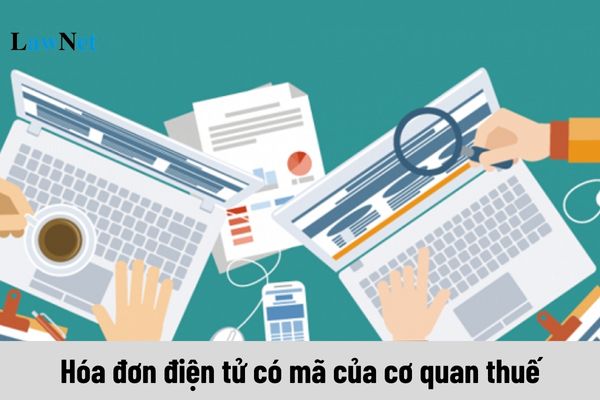What is an authenticated e-invoice in Vietnam?
What is an authenticated e-invoice in Vietnam?
Based on the provision at Point a, Clause 2, Article 3 of Decree 123/2020/ND-CP, an authenticated e-invoice is an e-invoice issued a code by the tax authority before the entity or individual sells goods or provides services to the buyer.
The tax authority code on the e-invoice includes a transaction number, which is a unique series of numbers generated by the tax authority's system, and a string of characters encrypted by the tax authority based on the information of the seller recorded on the invoice.
What are the components of an authenticated e-invoice in Vietnam?
According to Article 12 of Decree 123/2020/ND-CP regarding the format of e-invoices:
E-Invoice Format
1. The format of an e-invoice is a technical standard prescribing the data type and data length of information fields for the purpose of transmission, storage, and display of e-invoices. The e-invoice format uses XML language (XML is an acronym for "eXtensible Markup Language" created to facilitate the sharing of e-data between information technology systems).
2. The e-invoice format comprises two components: the component containing the business data of the e-invoice and the component containing the digital signature data. For authenticated e-invoices, there is an additional component containing data related to the tax authority code.
3. The General Department of Taxation develops and publishes the component containing the business data of e-invoices, the signature data component, and provides the tool to display the contents of e-invoices as stipulated in this Decree.
4. Organizations, enterprises selling goods, providing services when transferring e-invoice data to the tax authority directly must meet the following requirements:
a) Connect with the General Department of Taxation through a leased channel or an MPLS VPN Layer 3 channel, including one primary transmission channel and one backup transmission channel. Each transmission channel must have a minimum bandwidth of 5 Mbps.
b) Use Web Service or Message Queue (MQ) with encryption as a method to connect.
c) Use the SOAP protocol for data encapsulation and transmission.
5. e-invoices must be fully and accurately displayed to ensure no misinterpretation occurs, allowing the buyer to read them via e-means.
Thus, for authenticated e-invoices, there are three components:
- The component containing the business data of the e-invoice;
- The component containing the digital signature data;
- The component containing data related to the tax authority code.

What is an authenticated e-invoice in Vietnam? (Image from Internet)
What are the regulations on issuing authenticated e-invoices?
The regulations on issuing authenticated e-invoices as per Article 17 of Decree 123/2020/ND-CP are as follows:
(1) Issuing authenticated e-invoices
* Enterprises, economic organizations, other organizations, households, and individuals engaged in business activities that fall under the entities mentioned in Clause 1, Article 14 of Decree 123/2020/ND-CP should access the e-portal of the General Department of Taxation to issue invoices using an account provided during registration to perform the following:
- Issue invoices for goods sold or services provided.
- Digitally sign the issued invoices and send the invoices to the tax authority for code issuance.
* Enterprises, economic organizations, other organizations, households, and individuals using authenticated e-invoices through an e-invoice service provider should access the service provider's e-portal or use the provider's e-invoice software to perform the following:
- Issue invoices for goods sold or services provided.
- Digitally sign the issued invoices and send the invoices through the e-invoice service provider to the tax authority for code issuance.
(2) Code issuance for invoices
* The invoice issued a code by the tax authority must ensure:
- Completeness of the e-invoice content as prescribed in Article 10 of Decree 123/2020/ND-CP.
- Correct format of the e-invoice as prescribed in Article 12 of Decree 123/2020/ND-CP.
- Correct registration information as prescribed in Article 15 of Decree 123/2020/ND-CP.
- Not subject to cessation of use of authenticated e-invoices as prescribed in Clause 1, Article 16 of Decree 123/2020/ND-CP.
* The Tax Authority's invoice code issuance system automatically issues invoice codes and sends the issuance results back to the sender.
(3) Enterprises, economic organizations, other organizations, households, and individual businesses selling goods or providing services are responsible for sending electronically invoiced data already coded by the tax authority to the buyer. The method of sending and receiving invoices is carried out according to the agreement between the seller and the buyer, ensuring compliance with legal regulations on e-transactions.

